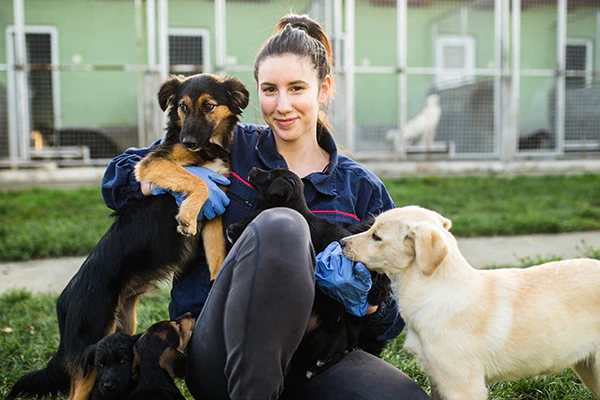Congratulations on your new furry family member from the shelter! The first day at home is a significant transition for you and your new poochie. While it’s an exciting time, it can also be stressful for the canine as it adjusts to a new environment.
It’s essential to be prepared and mindful of your actions to create a positive experience for the pup and establish your role as the puppy parent it can trust at any time. While you reflect on providing the best care possible to your new furry pet, consider purchasing dog insurance as well.
Canine insurance can help provide your furry family member with quality medical care during unplanned vet visits and health emergencies. Also, note that pet insurance cost can be much lower than hefty vet bills you may have to deal with during challenging times of health, so why not contemplate buying a policy?
In the meantime, read this article to learn how to make this transition easier for your newly adopted shelter pooch.
- Giving your new shelter pup some space can be important initially; this allows it to settle in and feel more comfortable in the new surroundings. Let the pupper approach you at its own pace and gradually build trust and bond. Hugs and cuddling can begin once it has become more familiar with you and the home environment.
- Give the puppy its space, but it is also essential to establish yourself as the leader of the house. This doesn’t mean being dominant or forceful but being firm, confident, and providing consistent guidance. Canine pets often feel more secure when they have clear leadership and boundaries. This will help prepare your poochie for training in the future and contribute to its overall comfort and well-being.
- Preparing your furry pet’s bed or crate in advance is indeed a great idea before bringing it home. This allows the fur baby to familiarize itself with its designated space and associate the place with positive experiences. Leaving a few bones or treats in the area can further reinforce the positive association.
- If your new pet seems agitated, hyper or displays excessive energy, take it for a walk; this can be beneficial. Exercise can help tire it out, promote a calmer mental state, and create a more conducive environment for affection and bonding.
- Creating a cozy nook or a private space for your rescue dog to retreat is crucial for its well-being. It provides your new four-legged baby a safe and comfortable area to have some alone time and unwind when overwhelmed.
- Set up a crate with food, water bowls, and toys so your rescue dog eats, plays, and catches sound sleep on the first night home. You can even place the crate in your bedroom so your furry pet is assured that you are just a few steps away when there is a need for something. Plus, the puppy may not feel lonely with your presence in the same room.
The adjustment period depends on individual dogs, so stay calm and patient until your pet learns to trust you. Take one step at a time, and always respect your four paws’ needs and boundaries.
Consider being equipped with dog insurance so that getting medical help during unanticipated illnesses is much easier. Pet insurance cost can be more bearable than surprising vet bills during testing times of health, which is why you must contemplate purchasing a policy.




